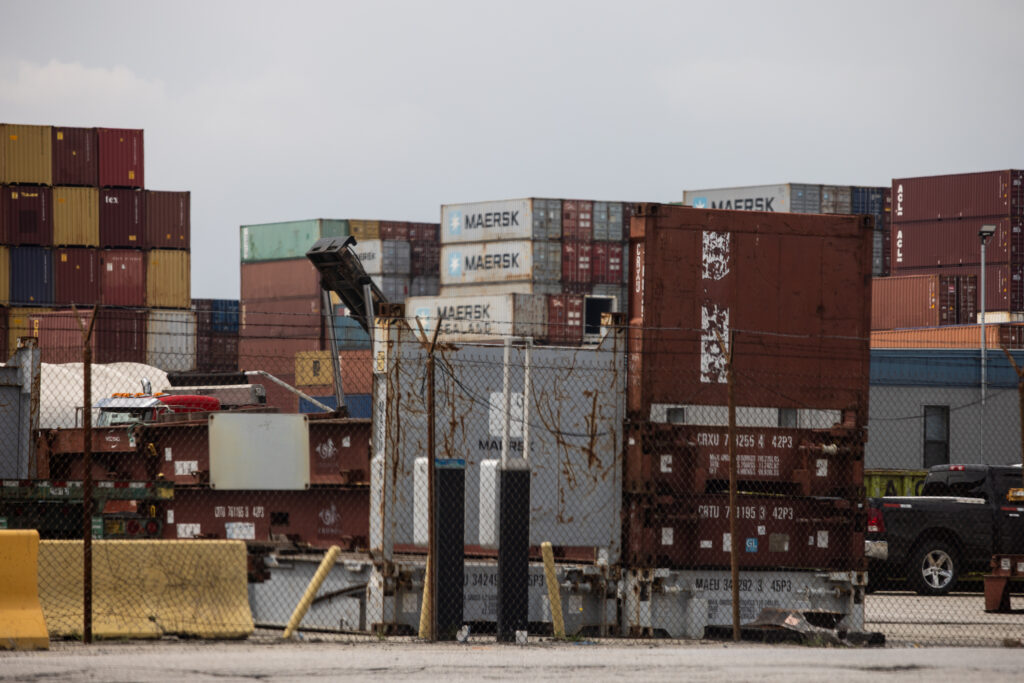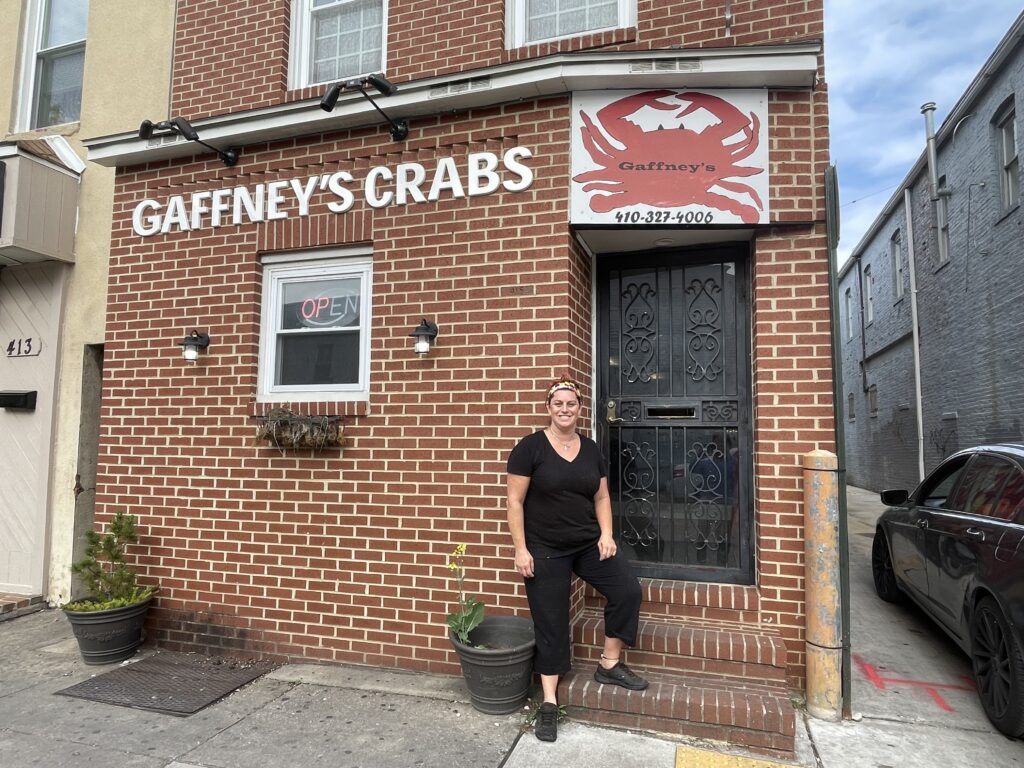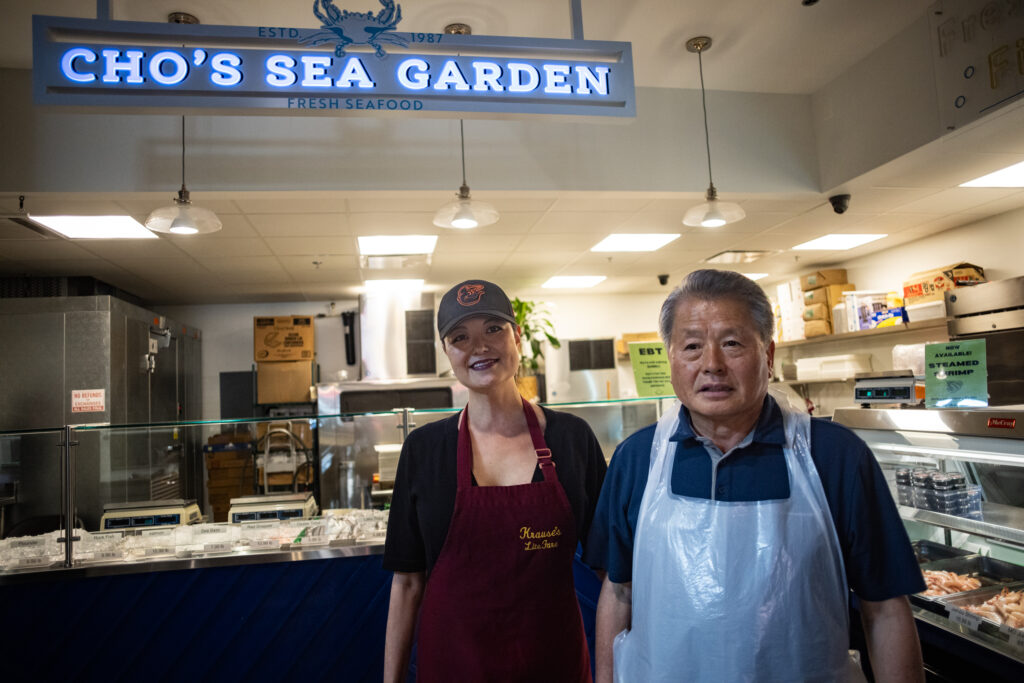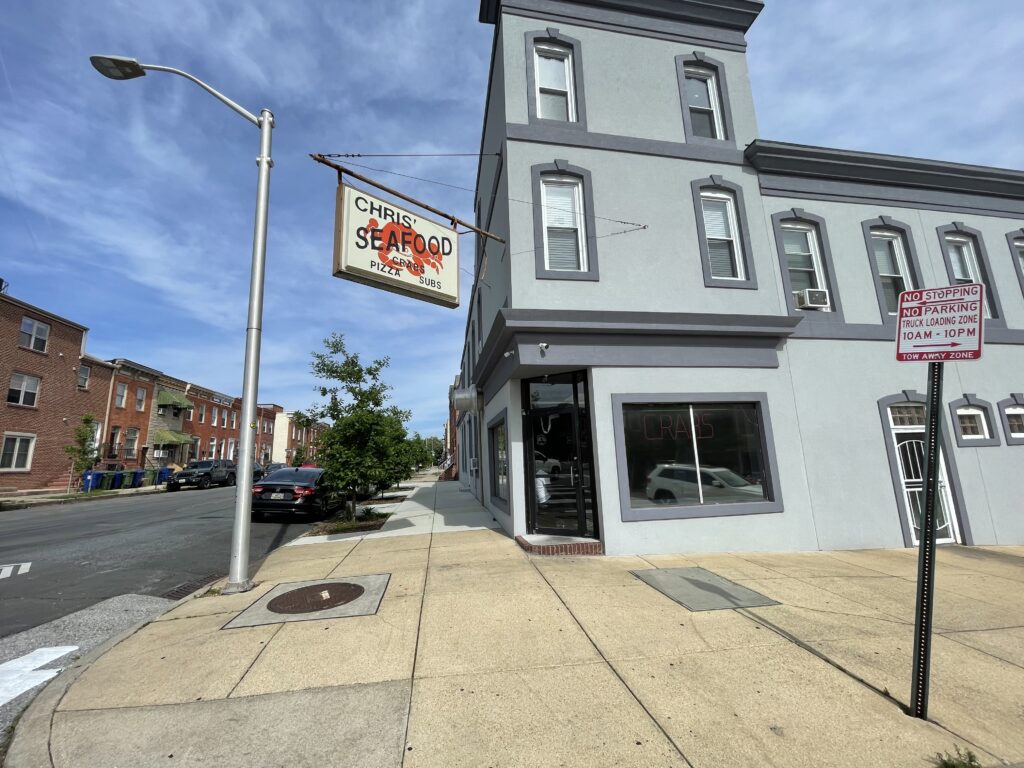
Deep-blue Maryland has been a stronghold for Democrats in general elections for decades. But with a popular former Republican governor running for an open Senate seat and eight House races, the Old Line State could spring a few surprises this November. In this series, Old Line, New Battles: Maryland feels the primary pinch, the Washington Examiner will look at the key figures and important issues six months until election day. Part five will focus on how the collapse of the Francis Scott Key Bridge is affecting local businesses.
BALTIMORE — Baltimore-area businesses are adapting to a new routine two months after the collapse of the Francis Scott Key Bridge, but many are still concerned about the downstream impact the March 26 accident will have on their bottom lines.
Seafood restaurants and vendors, a staple of the city’s identity, are particularly concerned with how increased traffic, coupled with a down crab season on the Eastern Shore, are impacting product supply heading into summer, the busiest time of the year.
Joe Gold, the general manager at Key Brewing, a brewery and restaurant in Dundalk on the eastern end of the Key Bridge, said the city is “used to tragedy.”
“It’s just the nature of where we’re from, and we’re gritty folks,” Gold said during an interview with the Washington Examiner. “I think the optimism in our city is divided in that the people that have been affected the most, probably, have the most optimism.”
But Gold acknowledged that while local patrons, many of whom work at the Port of Baltimore, appear to be coming in more frequently, Key Brewing has also lost any new business coming across the water from the city proper.
“We’re literally cut off from sort of that side of the river, so you got to go up and around, and hazmats have to go all the way around, but we can go into the two tunnels,” he said in an interview with the Washington Examiner. “But what’s happened is the commute from our side became more tedious on our people, but people that live on that side aren’t coming this way. They have other options.”

“We can tell our locals are coming in more often than they’ve ever been,” Gold continued, noting that the longshoremen living in Dundalk still don’t know when they will go back to working full time. “Unfortunately, their money is going to dry up one day, you’d sort of think, and we’re not getting an influx of anybody from outside.”
The Washington Examiner spoke to more than two dozen retailers, restaurants, and grocers on both sides of the collapsed Key Bridge, nearly all of whom said business had not significantly slowed since late March but are cautiously waiting to see if those levels can be maintained through the busy summer months.
Furthermore, a majority of the business owners who spoke with the Washington Examiner said they were unsure of how to apply for emergency relief loans provided by President Joe Biden’s Small Business Administration, even though they were aware that those funds had been made available by the federal government.
SBA officials declined to provide total numbers of loan applicants and recipients to the Washington Examiner, as it would violate the administration’s “personally identifiable information” protections for businesses.
Karen Gaffney operates Gaffney’s Crabs, a family-owned to-go crab house in Highlandtown, and she said increased traffic is making staff members rethink their delivery routes.

Gaffney’s husband runs the restaurant’s crab pots near the Eastern Shore’s Solomons Island. What used to be a relatively manageable drive via the Key Bridge has nearly doubled in length thanks to detours, and Gaffney has hired a longshoreman who has lost out on shifts while the cleanup effort continues around the port to make the haul for her.
“If I have to go down there and get the crabs for them, and I’m sitting in traffic, I can’t be here,” she told the Washington Examiner. “I’m the person who runs this.”
Asked if she plans to apply for any federal aid to help alleviate the costs of adding an employee, Gaffney said she had never heard of the SBA relief program but wouldn’t apply even if she had.
“I just don’t want to take from where it’s needed,” she said.
Arra Cho is a co-owner of Kraus’ Little Fare Deli and Cho’s Sea Garden, the latter of which was opened by her father in the old Lexington Market four decades ago. Both stores are now located in the new Lexington Market, which opened next door to the old building in 2022, near Oriole Park at Camden Yards.

The Chos say they haven’t experienced “too much of a delay” in receiving their products so far but are concerned about rent payments for both of their market stalls should any major bottlenecks arise.
Cho told the Washington Examiner that Lexington Market did receive pandemic-era emergency funding from the federal government but added that she was not aware of the exact mechanism to apply for an SBA loan herself. Jamal McCord, the general manager of Lexington Market, additionally told the Washington Examiner that the market is exploring a new SBA loan and determining how it would distribute those funds among its various vendors and staff members.
Stacey Guzman, the owner of Chris’ Seafood in Canton, lamented the low supply and high prices of both local blue crabs and crabs brought in from Texas and Louisiana. Guzman noted that the Gulf of Mexico is also having a down season, and the week after the bridge collapse, crab coming in from that region went up $34 a box.

“We’re not getting enough crabs because Louisiana has been so short, and then all the rains and the storms that they’re having has been really difficult on us,” she said in an interview with the Washington Examiner. “This is definitely probably our slowest season so far to start.”
Guzman said Texas and Louisiana suppliers are only shipping twice a week, down from every day, and added that freight deliveries have been delayed due to Key Bridge detours.
She told the Washington Examiner that deliveries are increasingly arriving in the evening, rather than near opening, which can be a death sentence for a business built on freshness.
“You’re losing the majority of that day,” Guzman expressed with dismay. “All that’s bottlenecked because of the bridge being down.”
Baltimore is years removed from replacing the downed Key Bridge, but the state government has not reported any delays on the projected timeline. Authorities plan to use explosives Sunday to remove a section of the Dali ship in an effort to free it and reopen the port, according to the Baltimore Sun.
Richard Scher, a spokesman for the Maryland Port Administration, confirmed to the Washington Examiner that the state expects its “full, 50-foot deep, 700-foot wide channel to be reopened by the end of this month.”
Maryland Department of Transportation officials added that they are on track to complete construction of a new bridge by 2028, with an estimated cost ranging between $1.7 billion and $1.9 billion. MDTA additionally plans to release a Progressive Design-Build Request for Proposal this month, and it hosted an industry forum with contractors and engineers on Tuesday.
“Federal funding, insurance proceeds, and other reimbursements will bring a variety of resources toward the rebuild and recovery effort,” an MDTA spokesperson said in a statement. “The state is pursuing other recovery options to minimize net cost to taxpayers and toll customers.”
Biden himself visited Baltimore in early April and pledged full federal support for the recovery and rebuilding effort.
“This port is older than our republic,” Biden said. “It’s been through tough, tough times before. We’re determined to come back even stronger.”
CLICK HERE TO READ MORE FROM THE WASHINGTON EXAMINER
On the president’s response, Gold told the Washington Examiner that “we live in a five-minute news cycle.”
“It’s a double-edged sword when you said ‘people around here,’ and then you said ‘President Biden,’” he said. “This part of the world happens to probably not be the same color, blue or red, as what his politics are. So it’s less about Biden, and it’s more about our governor, our mayor, our people helping out, and it’s less about the Biden thing than the locals.”






